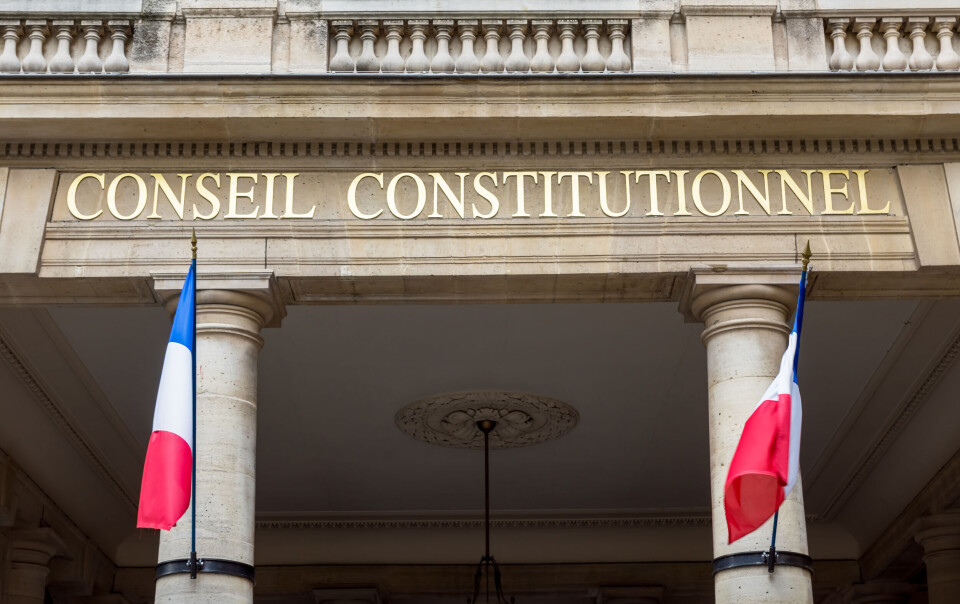-
French woman given one-year sentence for hiring men to evict squatter
Homeowner from south-west found guilty by Bordeaux criminal court
-
Drinking tap water restricted for children in south-west France communes
Haute Garonne prefecture says the measure is precautionary and due to high chlorate levels
-
‘Trustworthy’ media label idea from Macron causes political storm in France
Comments prompted fierce political backlash from right but government insists it was taken out of context
France’s constitutional court sets date for ruling on pension reforms
It will decide on the constitutional legality of the project and whether it should be put to a national referendum

France’s constitutional court is set to issue its ruling on the government’s controversial pension reforms on April 14.
It comes after the changes, which include raising the minimum retirement age from 62 to 64, were pushed through parliament without MPs voting.
Read more: Fury as French PM forces through pension reforms without a vote
The members of the Conseil constitutionnel are sometimes colloquially called ‘Les Sages’ (meaning ‘The Wise Ones’). The court is the highest constitutional authority in France and is housed in the Palais-Royal, Paris.
It will hand down its judgement on the law “at the end of the day” on Thursday, April 14, a statement said.
It is set to decide on the constitutional legality of the project, and on whether it should be put to a national referendum (référendum d’initiative partagée, RIP) as suggested by left-wing opponents.
The court could decide:
-
To approve the entire law
-
To censure or change parts of the law
-
To allow it to be put to a referendum
The legality of the request to put the vote to a referendum will be considered, The admissibility of this request will be debated in itself. This is because RIPs are usually only intended for use for questions of "the organisation of public authorities, reforms relating to economic, social or environmental policy and the public services that contribute to them”.
If the decision is to put the bill to a referendum, a citizens’ petition would then be opened. This petition would need to gather support signatures from one-tenth of the electorate (around 4.87 million signatures) within nine months, to open the way to a referendum.
The court will begin to hear ministers from the left from 14:30 on Tuesday, April 4.
The far-right Rassemblement National party, which is also against the reform, did not ask to be heard by the court, as its members felt that their arguments would be put forwards by the existing opposition MPs, parliamentary sources said.
Already, around 250 opposition MPs have suggested a referendum on the question of whether the legal retirement age “can or cannot be set beyond the age of 62”.
Other opponents have also lodged appeals to challenge the reform and some claim the recourse to article 49.3 - which allowed the law to be approved by parliament without MPs voting - was a “misuse” of the political mechanism.
Read more: French PM survives two no-confidence votes over pension reforms
Opponents are still holding protests against the reform, and unions have now called for a new day of national strikes on Thursday, April 6.
























